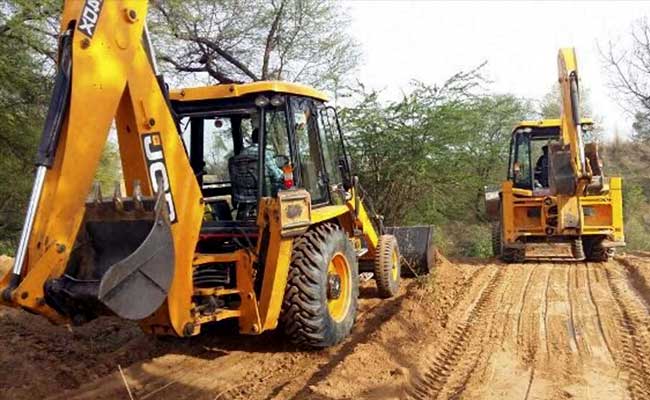
Under a decades-old agreement, water would be shared with Haryana via Sutlej-Yamuna canal, 85 per cent of which has been built already.
Punjab has decided to defy a Supreme Court order in its clash with Haryana over sharing water through the Sutlej-Yamuna link canal.
The Punjab assembly supported Chief Minister Parkash Singh Badal's resolution that the state "would not abide by any order against its interests".
Work on the canal began over 30 years ago and constructed has taken place in fits and starts for nearly 700 crores, with Haryana paying for most of it.
Last week, the opposition Congress and the ruling Akalis, who govern Punjab in a coalition with the BJP, combined to clear legislation to give back nearly 4000 acres of land acquired for the canal to farmers.
On Haryana's petition, the Supreme Court yesterday stopped Punjab from returning the land till March 30.
Punjab Governor Kaptan Singh Solanki has not signed the proposal, but politicians have defied all rules to start filling up the canal with mud to ensure it cannot be used to route water to Haryana. Neither the police nor administration officials have dared to stop them.
Under a decades-old agreement, water would be shared with Haryana via the canal, 85 per cent of which has been built already.
 Delhi has also been drawn into the controversy.
Delhi has also been drawn into the controversy.
Delhi Chief Minister Arvind Kejriwal, whose Aam Aadmi Party or AAP is coveting big gains in the election in Punjab next year, recently said that the state does not have enough water to share with Haryana.
Haryana in turn, warned him in a trenchant letter to get "your own canal constructed."
Today, Mr Kejriwal said: "Of course Haryana will give water. It is not appropriate to do politics over this."
Many observers predict that if Punjab is allowed to get away with the filling up of canals with mud in order to block the flow of water, it could set a dangerous precedent for other parts of the country and threaten federal unity with inter-state battles for waters that ignore the law.
The Punjab assembly supported Chief Minister Parkash Singh Badal's resolution that the state "would not abide by any order against its interests".
Work on the canal began over 30 years ago and constructed has taken place in fits and starts for nearly 700 crores, with Haryana paying for most of it.
Last week, the opposition Congress and the ruling Akalis, who govern Punjab in a coalition with the BJP, combined to clear legislation to give back nearly 4000 acres of land acquired for the canal to farmers.
On Haryana's petition, the Supreme Court yesterday stopped Punjab from returning the land till March 30.
Punjab Governor Kaptan Singh Solanki has not signed the proposal, but politicians have defied all rules to start filling up the canal with mud to ensure it cannot be used to route water to Haryana. Neither the police nor administration officials have dared to stop them.
Under a decades-old agreement, water would be shared with Haryana via the canal, 85 per cent of which has been built already.

Politicians have defied all rules to start filling up the canal with mud to ensure it cannot be used to route water to Haryana.
Delhi Chief Minister Arvind Kejriwal, whose Aam Aadmi Party or AAP is coveting big gains in the election in Punjab next year, recently said that the state does not have enough water to share with Haryana.
Haryana in turn, warned him in a trenchant letter to get "your own canal constructed."
Today, Mr Kejriwal said: "Of course Haryana will give water. It is not appropriate to do politics over this."
Many observers predict that if Punjab is allowed to get away with the filling up of canals with mud in order to block the flow of water, it could set a dangerous precedent for other parts of the country and threaten federal unity with inter-state battles for waters that ignore the law.
Track Latest News Live on NDTV.com and get news updates from India and around the world

